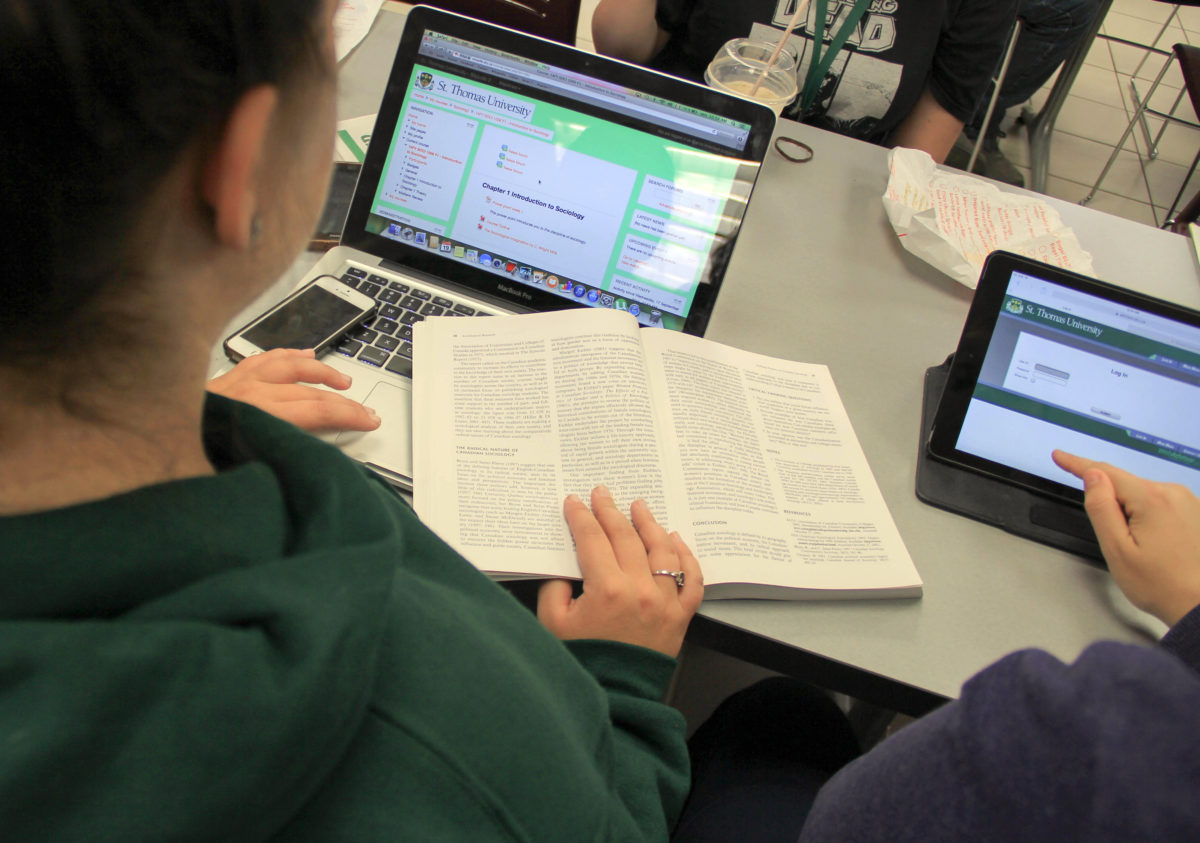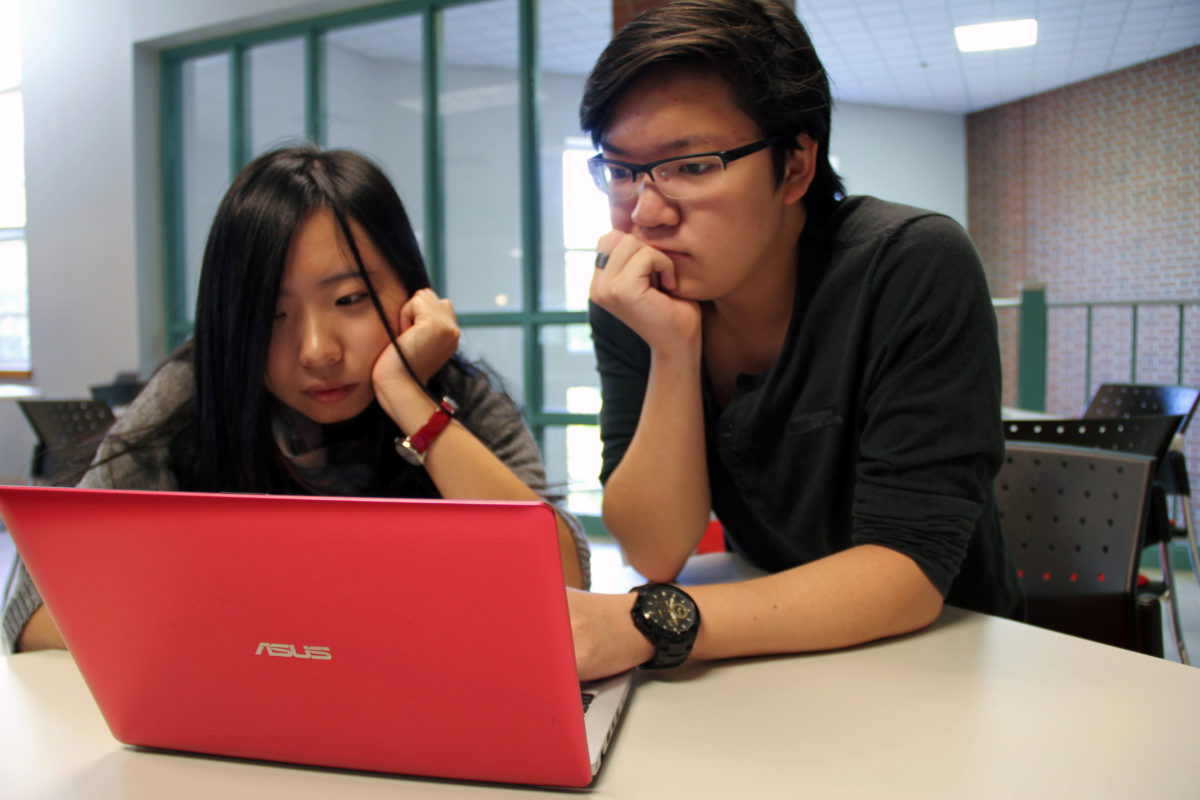St. Thomas University students are noticing a trend of fewer professors allowing laptops and cellphones in class over the years, and less use of the devices in classes that do allow them. The university is looking to create a policy that tells students and professors where and when they can use their electronics.
A regulation in the STU academic calendar states students may use laptops and related electronics responsibly within the classroom, but not for non-class related pursuits. Still, many teachers impose class rules on the use of personal electronics.
Caleb Burpee is a third-year English and philosophy student who returned to STU after a two-year hiatus. He uses a laptop in all four of his classes this semester because he can type faster than he can write, and because he finds it easier to organize notes and materials electronically.
“They really should make a policy on it,” Burpee said “I’m not sure what that should be. I agree they should have something on the books, because electronics are in almost everyone’s hand now and they organize their lives around it.”
Journalism professor Jan Wong doesn’t allow students to use cellphones and laptops in her classes. She makes exceptions for students who approach her before class about a pending phone call, and for students who need an electronic aid to do their work. She also allows devices to be used for quick information searches in class.
“I ban it because I think that it’s distracting,” she said. “You can’t do two things at once, and I want you to pay attention.”
Wong spoke of studies that found texting and driving more dangerous than driving drunk in terms of the accident rate.
“The amount of attention your spending is similar to drunk driving.”
Studies have found that using laptops in class distracts not only the user, but those around them, too.
Jeffrey Carleton, spokesperson for STU, said the current policy isn’t effective because it doesn’t look at the reality of life for most young adults: they are constantly connected to their devices and the Internet.
At peak hours, the school of just around 2,000 students sees about 1,400 devices connected to its network, and that does not include students connected to Wifi in the school’s residences.
“This is an emerging issue because of the prevalence of smart phones,” Carleton said. “They’re getting cheaper and more people have them.”
The university registrar is currently polling Canadian universities’ policies on personal technology. Carleton said preliminary reports have found most universities have no such policy.
Wong hopes any rules that come from the administration leaves the decision in the professors’ hands.
Burpee hopes for a rule that would allow full and constant access to the Internet but offer repercussions for abusing the privilege.
“If you’re willing to pay and sit in the class and not learn, good for you. You paid a bunch of money for this luxurious Internet access,” he said.

